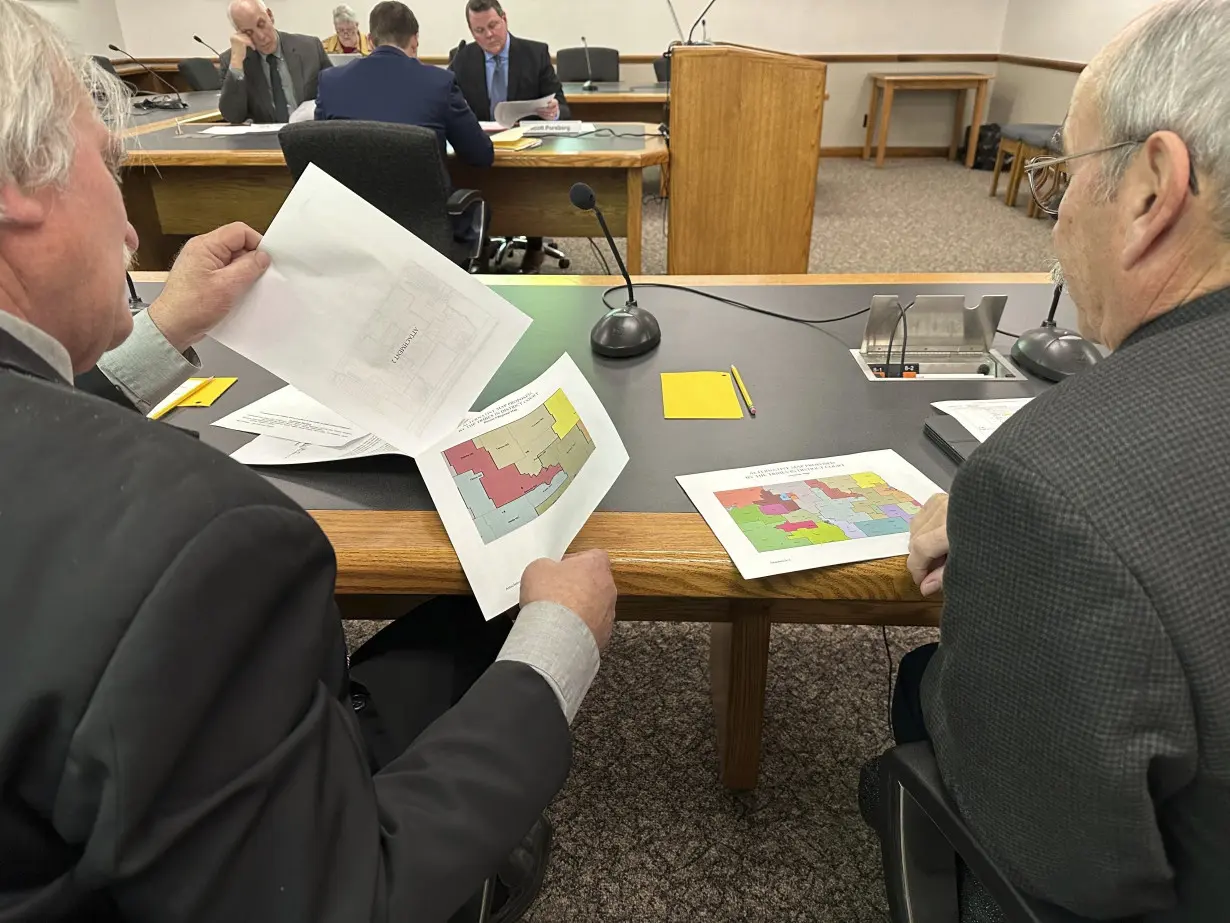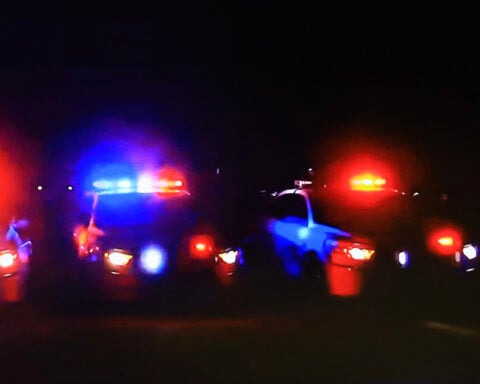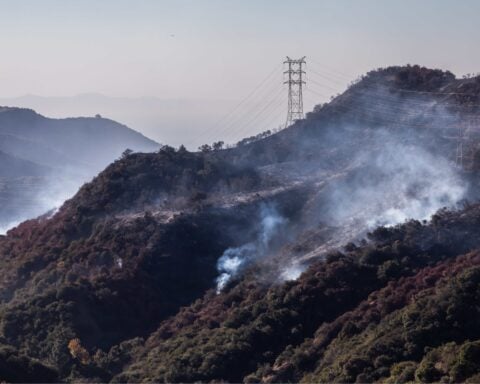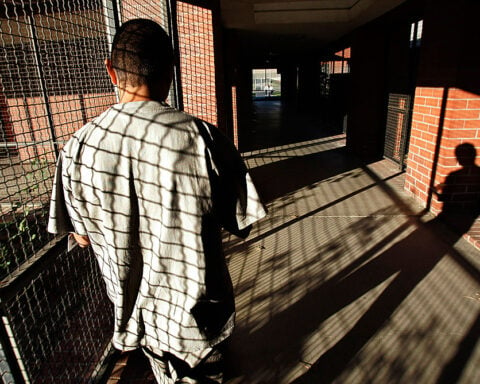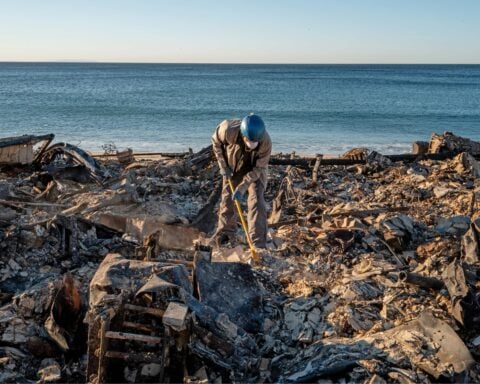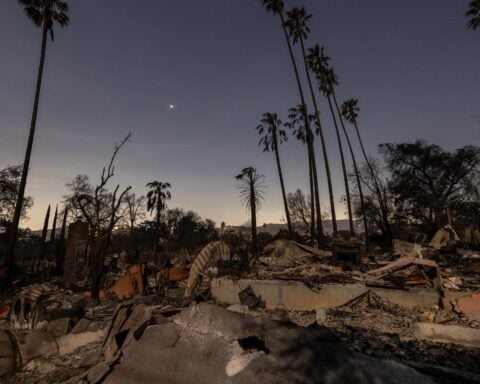BISMARCK, N.D. (AP) — A federal judge on Monday ordered a new joint North Dakota legislative district for two Native American tribes that successfully argued a map created through redistricting in 2021 violated the Voting Rights Act by diluting their voting strength.
U.S. District Court Chief Judge Peter Welte's decision to adopt and implement a new map comes after a flurry of court filings in the lawsuit since his Nov. 17 ruling that the state's 2021 redistricting map “prevents Native American voters from having an equal opportunity to elect candidates of their choice.”
The judge had given North Dakota Republican Secretary of State Michael Howe and the GOP-controlled Legislature until Dec. 22 “to adopt a plan to remedy the violation.” The deadline passed with no new map as Howe and lawmakers sought a delay of the judge's ruling and more time to respond.
Welte said the new map "requires changes to only three districts and is the least intrusive option that complies with the Voting Rights Act and the Constitution."
The Turtle Mountain Band of Chippewa Indians and the Spirit Lake Tribe brought the lawsuit in early 2022. They alleged the 2021 redistricting map “simultaneously packs Turtle Mountain Band of Chippewa Indians members into one house district, and cracks Spirit Lake Tribe members out of any majority Native house district.”
In an emailed statement, plaintiffs' attorney Tim Purdon said the tribes welcome the ruling for the 2024 elections.
“The map that will be used in 2024 is the same Voting Right Act-compliant map the Tribes originally recommended to the Redistricting Committee and the full Legislature during the 2021 redistricting process," he said. “The time has come for the Legislature and the Secretary of State to stop spending taxpayer dollars litigating against fair maps in North Dakota."
It wasn't immediately clear which lawmakers are affected by the new boundaries, such as who might have to run against a colleague to keep his or her seat in the Legislature. North Dakota's assembly only meets in odd-numbered years and is not in session.
Days after Welte’s November ruling, Howe announced his plans to appeal, citing a new 8th U.S. Circuit Court of Appeals ruling that private individuals and groups such as the NAACP can’t sue under a critical section of the landmark civil rights law.
Welte and the 8th Circuit denied Howe's requests to delay the November ruling pending appeal. Late last month, the 8th Circuit denied the Legislature’s request to extend the Dec. 22 deadline to Feb. 9.,
Soon afterward, the Legislature asked Welte for the same extension, saying it “has made substantial headway toward the development of a remedial redistricting plan.” At the same time, the tribes asked the judge to deny the extension and to impose one of their two maps presented in federal court, by Dec. 31. On Monday, Welte denied the Legislature's request for more time and granted the tribes' request for a new map.
Republican House Majority Leader Mike Lefor said lawmakers have postponed the Tuesday meeting of the Legislature's Redistricting Committee. The panel began meeting last month to address the November ruling and to review options of maps, including the tribes' plans. Top lawmakers also plan to meet with the secretary of state, attorney general and the Legislature's attorneys, Lefor said.
“We've got to get our ducks in a row to kinda comprehend the ruling and the different things that could come into play here,” he said.
Howe did not respond to a phone message or a text message.
In 2021, the two tribes unsuccessfully proposed a single legislative district encompassing the two reservations, which are roughly 60 miles (97 kilometers) apart. Their lawsuit culminated in a trial in June in Fargo; Welte ruled months afterward.
North Dakota has 47 legislative districts, each with one senator and two representatives. Republicans control the House of Representatives 82-12 and the Senate 43-4. At least two lawmakers, both House Democrats, are members of tribes.
The Legislature created four subdistricts in the state House, including one each for the Fort Berthold and Turtle Mountain Indian reservations.
Lawmakers who were involved in the 2021 redistricting process have previously cited 2020 census numbers meeting population requirements of the Voting Rights Act for creating those subdistricts. Lefor has said the process was done correctly.

 Body count from South African mine siege rises to 60
Body count from South African mine siege rises to 60
 US importers rush in goods from China as Trump tariff threat looms
US importers rush in goods from China as Trump tariff threat looms
 China's RedNote: what you need to know about the app TikTok users are flocking to
China's RedNote: what you need to know about the app TikTok users are flocking to
 Novak Djokovic breaks a tie with Roger Federer for the most Grand Slam matches in tennis history
Novak Djokovic breaks a tie with Roger Federer for the most Grand Slam matches in tennis history
 Japan finance minister flags action against excessive foreign exchange movement
Japan finance minister flags action against excessive foreign exchange movement
 British author Neil Gaiman denies ever engaging in non-consensual sex as more accusers come forward
British author Neil Gaiman denies ever engaging in non-consensual sex as more accusers come forward
